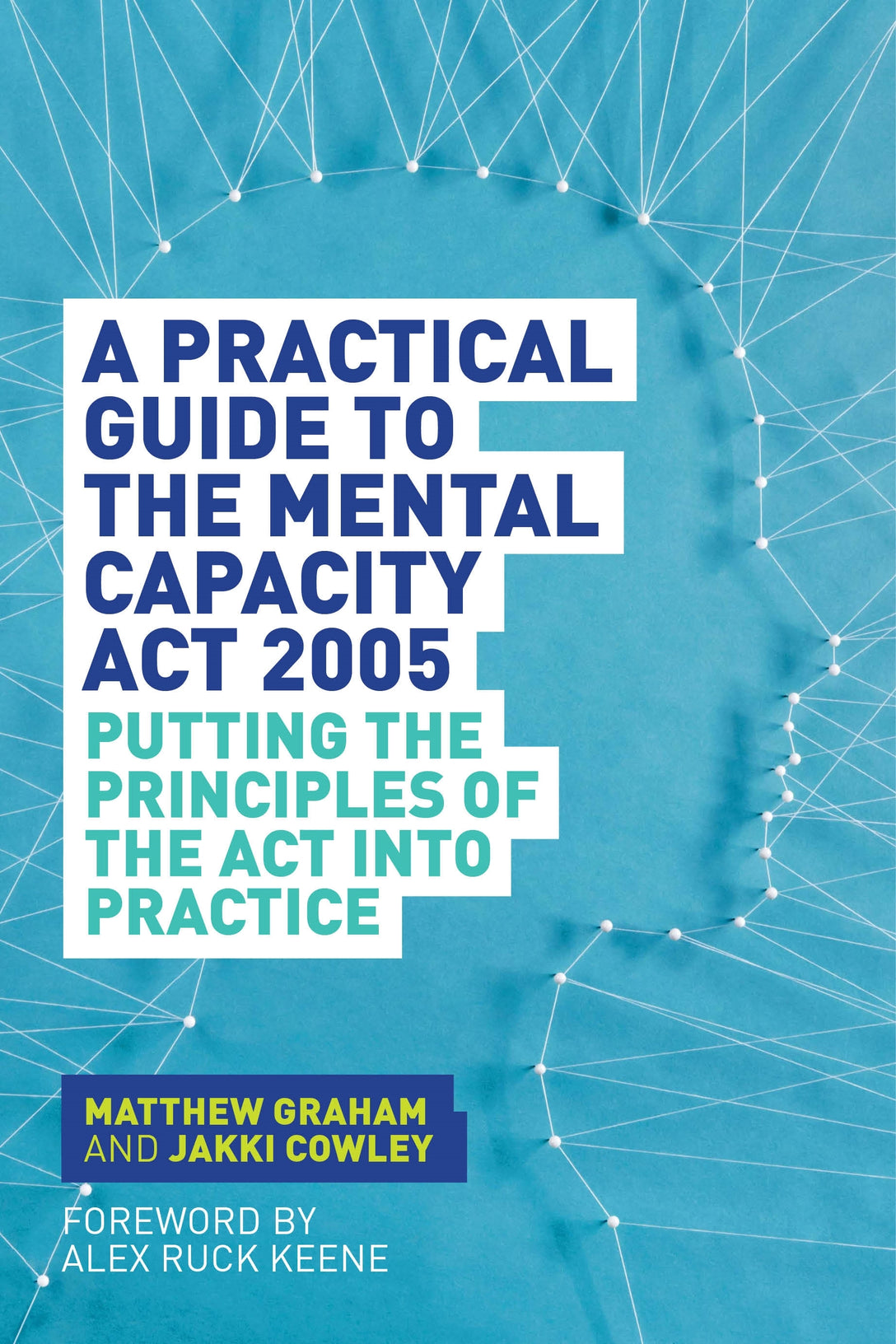
Press Reviews
Martin Vernon, Consultant Geriatrician and Clinical Director of Community Services, Central Manchester NHS Foundation Trust
Written by experienced practitioners in the field, this authoritative yet highly pragmatic book guides readers from all backgrounds expertly through a major piece of health and social care law. Starting from libertarian principles, Matt Graham and Jakki Cowley skilfully achieve their aim to demystify the MCA. They have made the statute, associated best practice guidance and case law easily accessible to those who need support navigating difficult and confusing decisions. Using a no nonsense style, together with a useful range of authentic case and best practice examples, the authors have created a highly useable hand book for the work place. Essential and recommended reading for anyone working within adult health and social care.
Toby Williamson, Head of Development & Later Life, Mental Health Foundation
The Mental Capacity Act is widely considered to be a positive piece of legislation but often ignored or misused because of low levels of awareness and understanding. This book will help to rectify that because it provides a clear, comprehensive and accurate description of the Act that is essential reading for anyone working with people who may lack capacity. The authors understand the practical challenges of applying the law on a day to day basis because they both bring an enormous amount of experience of doing this themselves. By emphasising the positive benefits and principles of the Act the book should make a very valuable contribution to improving practice and ensuring the legal rights of people are properly respected and complied with.
Dr Jill Bradshaw, Lecturer in Learning Disabilities, Tizard Centre
This is indeed a practical guide to the Mental Capacity Act 2005, written in a very accessible manner, with many helpful examples throughout which clearly illustrate the principles being explained. It encourages practitioners to use the principles of the Act within their daily practice. It will be of use to staff and families who are living or working in a range of settings and is very relevant to a range of client groups, including people with intellectual disabilities and those with autism spectrum conditions. It keeps the person at the very centre of the process of consent, provides clear guidance around what needs to be considered at all stages, encourages reflective practice and highlights the importance of experts of experience.
Alison Brammer, Senior Lecturer in Law, Keele University
This accessible practical guide captures the spirit of the Mental Capacity Act 2005.The authors clearly explain what practitioners need to understand about capacity and decision-making and effectively demystify the legal framework.
Alex Ruck Keene, Barrister and Honorary Research Lecturer at the University of Manchester
This book is a useful resource for practitioners. It is an excellent plain-English guide to the Mental Capacity Act 2005. The points are neatly broken down into bitesize sections (often in bullet-points) which makes the text easy to read and digest, or handy as a quick reference guide.
